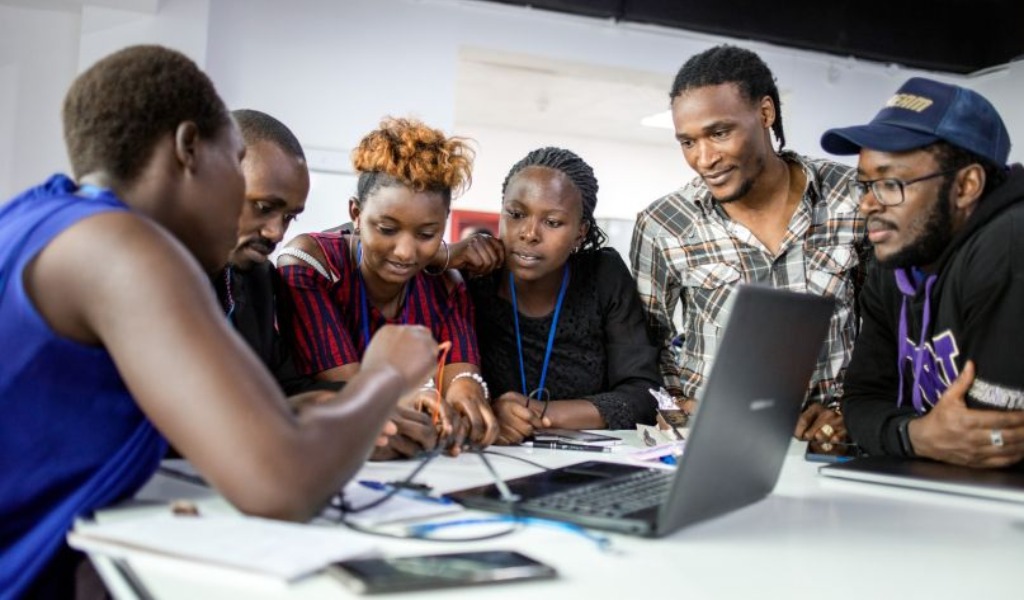Digital Transformation: Not just another cooperation
WSA, as an international award system, lives through and for its network. Finding, awarding and supporting relevant digital impact ventures from all over the world, the need for positive change on a local basis is the core of WSA.
WSA’s mission here perfectly crosses its path with the goals of the GIZ (Deutsche Gesellschaft für Internationale Zusammenarbeit GmbH)—and its Digital Transformation Centers. Therefore a partnership was formed to combine the global networks and introduce new initiatives to increase the impact of local innovation and green tech.
WSA met Jonas Herzing and Tim Steiner from GIZ and talked about cooperation on a global level, the necessity for local solutions and digital transformation.
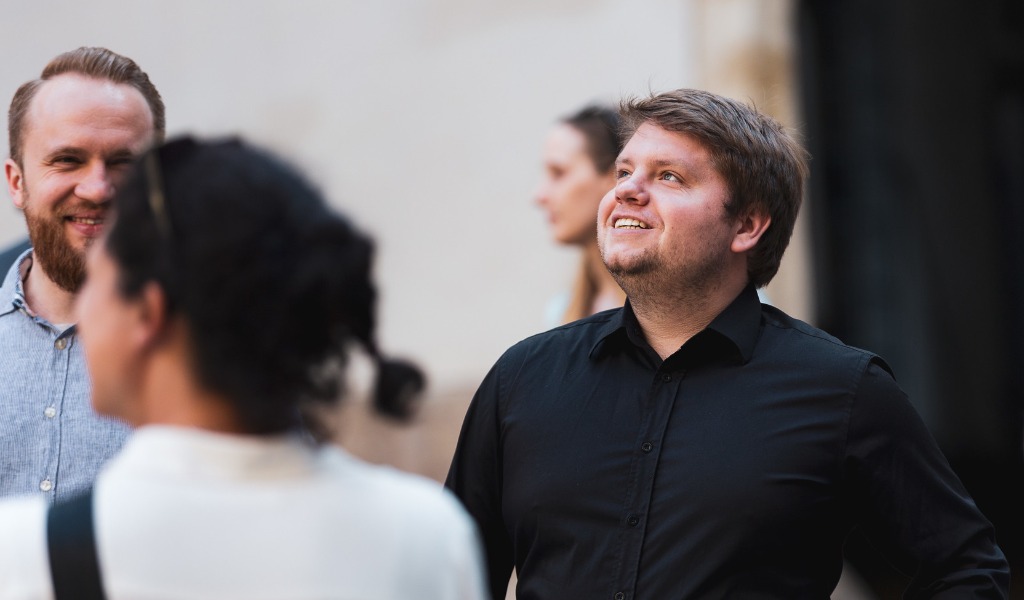
Tim Steiner (partly) & Jonas Herzing, Credit: WSA
Please, give us a brief insight into the work of GIZ in general and the DTCs (Digital Transformation Centers) particularly.
Jonas Herzing: The Deutsche Gesellschaft für Internationale Zusammenarbeit (GIZ) is a government-owned organization in Germany that implements assignments for the Federal Ministry for Economic Cooperation and Development (BMZ).
The Digital Transformation Centers are an initiative of the BMZ, implemented by GIZ. Their goal is to contribute to the further development of digital ecosystems at a local level in order to support a green, inclusive and self-determined digital transformation process. They bundle digital activities in their partner countries and stringently discuss them with possible partners. Even if there is digitalization in every sector, we work with our partners to see which sector we can support—such as digital health or agriculture—and set up the activities accordingly.
Any examples?
Jonas Herzing: This can be a government strategy for digitalization for the next five years in Niger. The idea is not to look at individual players but at the entire digital ecosystem in the country, which is mostly governments, startups, academic partners, civil society organizations, NGOs, and the people who are or will be involved with digitalization in their work. We look at all those actors and determine which one needs most support, and then we either work more with the government to build their capacity and support their strategic processes or with startups and support them with funding or mentoring or with citizens to improve their digital skills.
Another case is Rwanda, where they have a big focus on digital solution development. Software and applications are built, not by GIZ itself, but we look for local partners like startups, IT companies and NGOs, also government agencies—and together with them we build a solution. For example, they needed an application to better manage Covid-19, where you get info on your cell phone, not through the internet but the telecommunication network on old functional phones. You receive information, save your own status, vaccination and test dates, etc. The Digital Transformation Center looked for the right partners and they built this application for the government, which already has 2 million unique users in a population of 13 million.
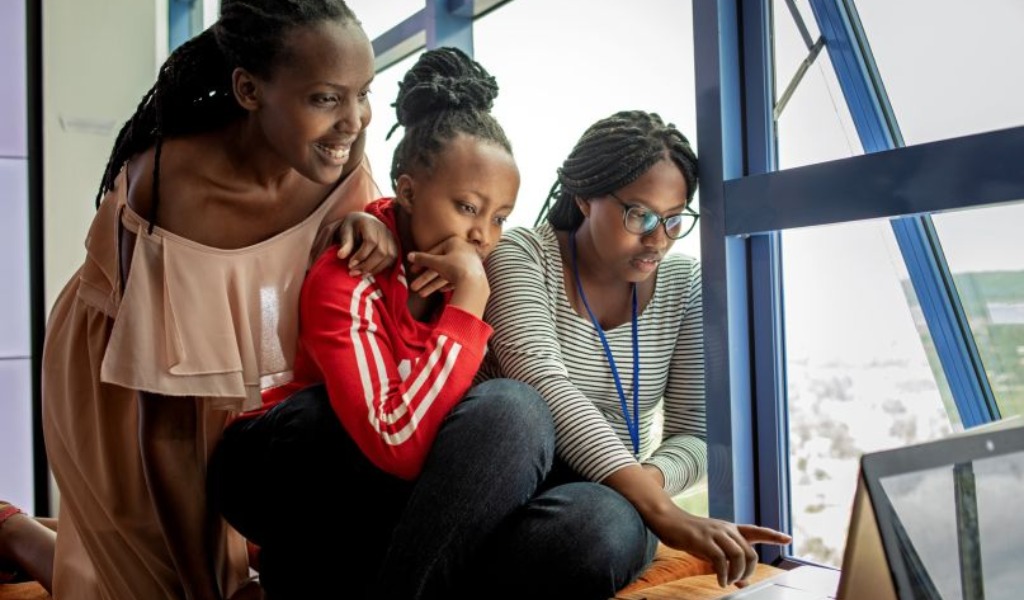
DTC Rwanda, Credit: GIZ
Can you tell us a bit about the partnership with WSA and where you see the added value?
Tim Steiner: Our collaboration happens on two stages. Firstly, we cooperate on a global level by supporting and participating in the WSA Grand Jury and the WSA Global Congress. Thereby, we want to communicate our perceptions on digital transformation in the Global South as well as search for digital solutions and start-ups that we or another GIZ project could work with.
Secondly, and even more important, is the partnership on the local level. Our DTCs are connected with the national WSA experts on the ground and work together on different projects. Examples are the WSA Call for applications and its following national jury process. Combining WSA’s and GIZ’ networks creates a very wide base of and for start-ups. That way GIZ works towards its goals and missions and WSA can profit from an extended network of purpose driven digital innovators.
What are the thoughts about these partnerships on a global level?
Jonas Herzing: Currently we have Digital Transformation Centers in 16 countries. The goal are 32 by the end of 2023, and that will of course continue. These centers do not just stand on their own but are combined in a network.
This network function is both Tim’s and my role—located in Germany we coordinate the various DTCs, help with setup and administrative issues and strengthen the exchange. We are interested in the clarification of as many issues as possible on a global level, so the individual DTC can put as much effort as possible into certain projects. Whenever a new DTC is set up, we provide with ideas divided into modules. Behind these modules are already quite operational products.
The Digital Health Module, for example, would be first discussed with the partner government, then we go through the collection of products that we have already implemented in that field elsewhere. Then we send blueprints and someone who was involved in the project elsewhere and make a first draft for implementation.
Tim Steiner: To translate that into our partnership with the WSA, we will co-host the 2022 WSA Grand Jury in Indonesia. Our DTC there has a great focus on green digital transformation and start-up support. Perfect for our common goals.
Additionally, the next WSA Global Congress in Mexico 2023 will also be co-hosted by our local DTC. Working together in the innovation ecosystems creates mutual benefits which we want to use to deepen our collaboration and networks. If feasible, we should think of bringing together not only the WSA family, but also the network of DTCs during this event.
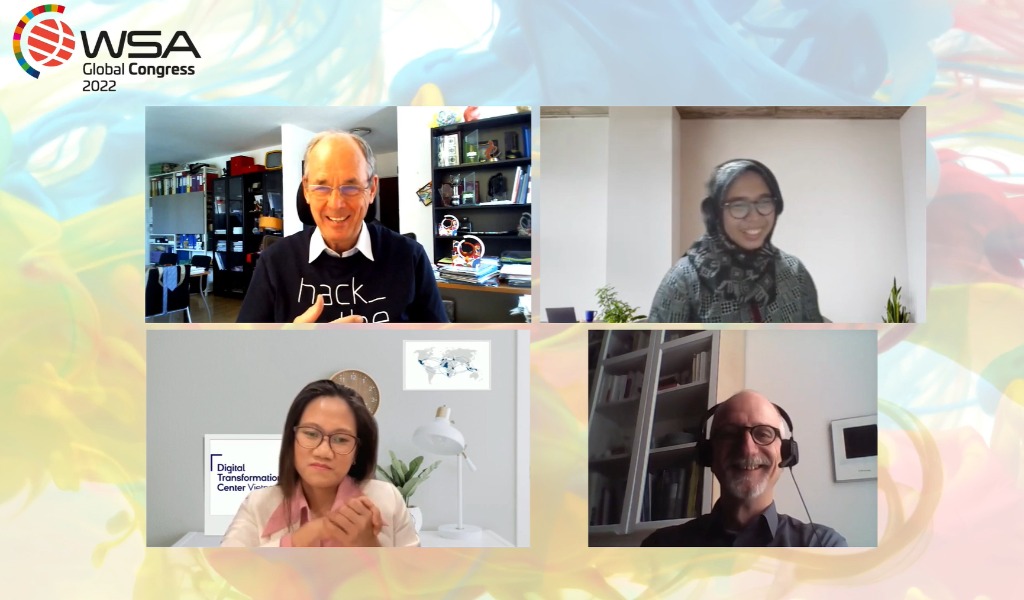
WSA Global Congress 2022, Innovation Pitches Environment & Green Energy, Credit: GIZ
Where are those countries?
Jonas Herzing: Mostly Africa, but also Latin America and Asia. In other words, we have a global focus. So far there was a stronger emphasis on Africa, where we have opened 11 DTCs so far, but we hope to also open more DTCs in Latin American and Asian countries soon. There are also plans for Eastern Europe, but for now the only European DTC exists in Kosovo.
The Digital Transformation Center Kosovo is located in the Innovation Park ITP Prizren, which is in a building that was originally a German military camp. It has a lot of space and is also a cool place to set up companies and university partners. And the Digital Transformation Center will also be located there.
Will the country need to pay for it?
Jonas Herzing: No, this is a service provided by German development cooperation. This is the German contribution to it.
Are internationality and traveling to DTC countries an added value for you personally?
Jonas Herzing: Yes, that's definitely an interesting point and was one of the reasons I changed professions, because it became too local for me in Germany. This internationalization I wanted to have again.
For example, Rwanda was great. During my stay Federal Minister Svenja Schulze visited Rwanda as well, her first trip abroad, and she also took a look at the Digital Transformation Center Rwanda.
Tim Steiner: International exchange is the core of our business. For us it is very important to not only talk about it but live it. Our team has many plans for that.
Personally, I will continue my journey with GIZ in Bangladesh. Even though we do not have a DTC there – yet. I am really looking forward to that, especially to finally meet WSA expert Rahat Hossain in person after connecting virtually during the last WSA Global Congress.
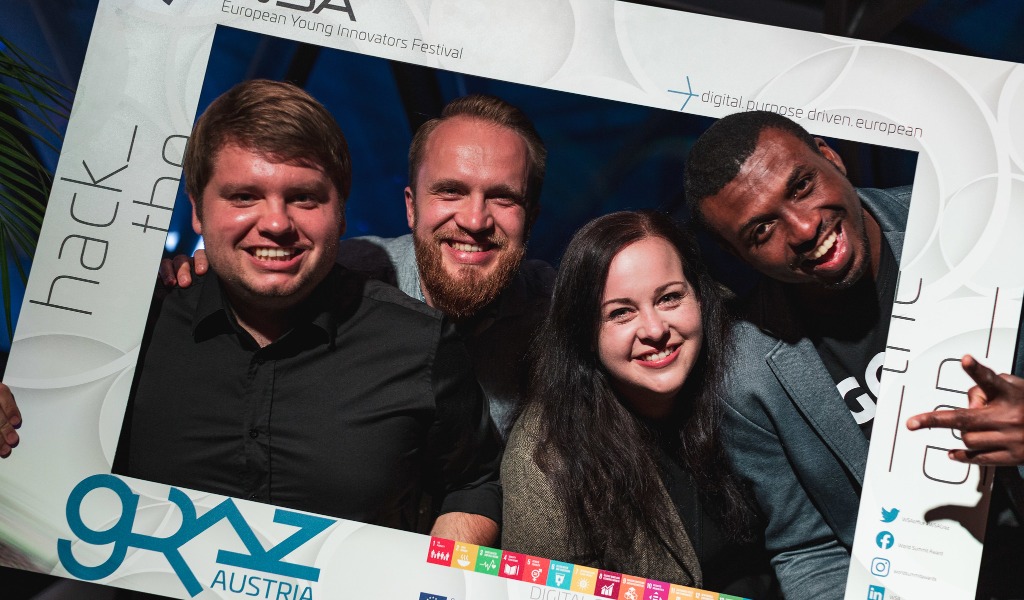
Jonas Herzing, Tim Steiner, Manuela Wagner (WSA) & Moses Acquah (Afrolynk), Credit: WSA
Jonas Herzing from Berlin, bachelor’s degree in business and computer science worked as a consultant for IT before doing his master’s in international politics in Paris and Shanghai. Drawing the essence of both studies he concentrated on public authorities and ministries in Germany, with the clear focus on the digital transformation process. Switched to GIZ last July as coordinator for digital issues worldwide in Germany.
Tim Steiner As a development economist, his passion lies in development cooperation. In the Digital Transformation Centers Umbrella Project, he can combine this passion with his affinity for global digital transformation processes. His motto: breaking new ground together.
